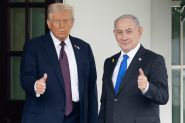
Lebanese emigrants have found themselves entangled in a crisis not of their making—namely, the existential crisis of the Shia community amid unfolding developments across the Middle East.
Calls to amend the provision governing emigrant voting—whether by assigning them to Electoral District 16 or allowing them to vote for MPs in their home districts—have become an explosive issue. This threatens not only the provision itself but the entire electoral law, opening the door to endless disputes that could further destabilize Lebanon’s already fragile state.
Given the country's inability to withstand additional crises, debate over the electoral law and emigrant voting could derail the legislative session scheduled for Monday.
The Amal-Hezbollah alliance is approaching this provision with extreme rigidity, treating it as a matter of life and death. They view any breach in Shia representation as unacceptable—something they believe could happen through the diaspora vote. They argue that pressure and restrictions imposed on them since October 7, 2023, have forced Hezbollah to carry out campaigns abroad. The irony, however, is that District 16 itself includes a Shia seat, and the concerns about external influence apply equally to this seat and to Shia voters overseas. In reality, the duo seeks to abolish emigrant voting altogether—not just voting for MPs in Lebanon.
Other political actors are more cautious. Christian parties insist on emigrants’ right to vote: the Lebanese Forces (LF) and the Kataeb favor allowing them to vote in their home districts, while the Free Patriotic Movement (FPM) supports the District 16 proposal, viewing it as their own initiative and accomplishment.
The Progressive Socialist Party openly supports emigrant voting but privately fears it could cost them seats, as happened in Aley with Mark Daou in the last election. A repeat scenario in Shouf-Aley, which recorded the highest turnout for the “Change” list, is also a concern.
Sunni MPs approach the issue pragmatically, assessing it based on electoral self-interest—whether emigrant voters in their districts would help or hurt their chances.
But the issue goes deeper. The Amal-Hezbollah alliance will, under no circumstances, allow this to proceed. This could spark a serious and prolonged crisis, with consequences that may extend to diplomatic missions. The Shia community believes its demographic weight entitles it to greater authority and power—something historically reinforced by weapons and internal control. Today, relinquishing arms while also accepting vulnerabilities through emigrant voting would expose the community to Lebanon’s internal political dynamics—something it will not accept.
From this perspective, the battle over emigrant voting is not truly about MPs, legal clauses, or potential amendments. It is, at its core, a confrontation with the Shia alliance—and a reflection of the broader anxieties gripping the Shia community as a whole.



Comments